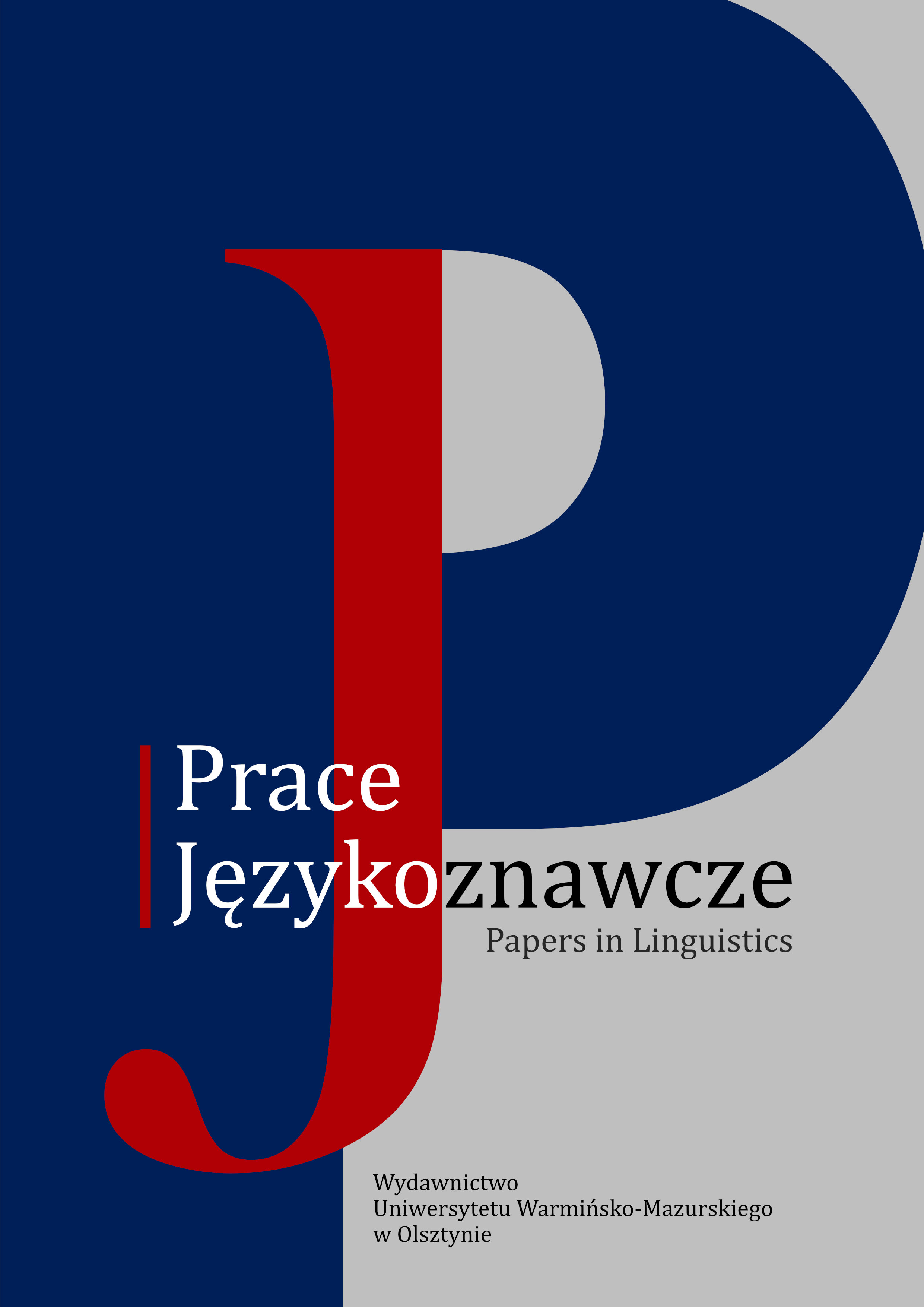Wolność dla szczupaka to śmierć dla płotki, czyli o semantyce przysłówka dowolnie
Freedom for the pike is death for the minnow – On the semantics of the Polish adverb dowolnie
Author(s): Izabela Duraj-NowosielskaSubject(s): Language studies, Language and Literature Studies, Theoretical Linguistics, Western Slavic Languages
Published by: Wydawnictwo Uniwersytetu Warmińsko-Mazurskiego w Olsztynie
Keywords: adverb; arbitralnie; free choice; jakkolwiek; lexical semantics; metapredicate
Summary/Abstract: Based on the assumptions of compositional semantics and using methods of structuraldescription, the study presents a semantic analysis of the Polish word dowolnie [freely,randomly], partly in comparison with the adjective dowolny [free, random] and in polemicswith other approaches to the word (including dictionary ones). Three meanings aredistinguished – one metapredicative and two adverbial ones, with the current analysisfocusing mainly on the latter, i.e. ad-verbum expressions. One of them comes close to themeaning of the pronoun jakkolwiek [in any way], and indicates the presence of variouspossibilities of action open to the subject; therefore, it assumes a non-factive sententialcontext, although in some cases an in-depth semantic interpretation is needed to recogniseit. The metapredicative meaning is analogical, yet dowolnie does not refer here to theaction of the subject, but to the activity of the speaker themselves, which is why it loses itsrelation to the verb at the object-level. The other type of adverbial use is based on factivecontexts and communicates negative assessment of what the subject did; the point is thatthe agent, having had possibilities of action open, ultimately chose an option which, fromthe speaker’s perspective, is not sufficiently justified. This carries with itself a valueof arbitrariness and incomprehensibility of the action from the speaker’s point of view,as evidenced by, among others, substitutability with the word arbitralnie [arbitrarily]and non-substitutability with jakkolwiek. The study also discusses the mechanism ofperspective-switch underlying the distinction of these two variants as well as the linguisticstatus of all the three expressions.
Journal: Prace Językoznawcze
- Issue Year: 26/2024
- Issue No: 2
- Page Range: 31-46
- Page Count: 16
- Language: Polish

